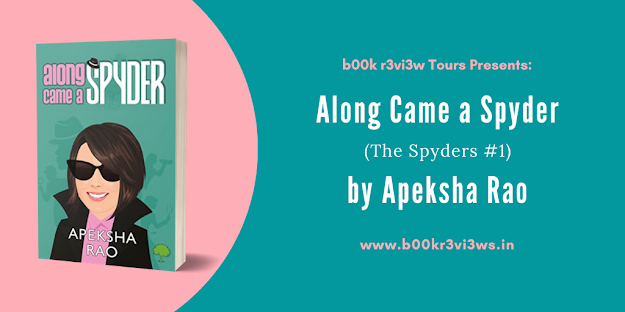Book Review : Surge on Like A River
About The Book
The essays are written in a simple, engaging style, and filled with profound insights. These nuggets of wisdom primarily draw from the author’s life experiences and her empathetic observations of the people and situations around her.
This English translation by V. Shyamala captures the lively nature of the original, bringing it to a wider audience with the idea that the readers who do not know Tamil should not miss out on the wonderful collection.
Book Review :
Author (Tamil): Bharathy Bhaskar
Translation (English) : V. Shyamala
Publisher : Suzhi Publications (20 December 2020)
Language : English
Pages : 119 pages
Quoting Jorge Gonzalez Moore, “The translator is the author’s accomplice.”, V Shyamala has categorically repainted the book into a paint that even the blind can see! Borrowing from Jose Saramago, "Writers make national literature, while translators make universal literature", V.Shyamala had taken upon herself the Herculean task of translating something, not just in essence, but also in meaning and character with an unfailing resolve that has evidently panned into the clarity and precision of this Translation. It retains those Tamil quips and quibbles or words that cannot translate its depth in English, which somehow finds a place in the reader's heart where it seems more authentic and the character of the author feels preserved as if the author herself is directly in discourse with the reader.Bharathy Bhaskar in the book says :Have you ever taken a pebble from the depths of a river and pressed it against your cheek with eyes closed, enjoying its cool smoothness? Wasn’t that pebble also once a sharp stone with jagged edges? It smoothened its rough, tearing edges under the torrential flow of the river. Entrusting ourselves to the great river called life, and gaining serenity and coolness alone will make our journey towards old age a pleasure, would it not?There was so much meaning and thought in this line where we are, by all means shaped and smoothened by our life like how a river shapes a jagged, rough stone into a soft smooth pebble that everyone would want to grip in their palms. The book is resplendent with such thought-provoking epigrams and aphorisms. The line which goes "...we have the itching compulsion to mentally touch the parts of our heart that pain, the tears that we shed years ago, the hatred we carried towards someone, rejections we faced; that we have kept safe say, ‘ssssss, that pains’, and get a jolt of heated gratification from it.", so vividly portrays a trait that is common to all mankind, with no exceptions.The outlook of the world and the gender bias and the unnecessary turmoil people cook up in the name of success and achievements falls under scrutiny in the book and she rightly says , "‘Go to work at the cracker company and fill my cup of alcohol,’ say the uneducated parents. Educated parents dictate, ‘Win in the television competitions and fill my goblet of pride’". The innocent verbose childhood that happens to be a girl, who is constantly scolded for being too talkative asks, “Aunty, what does ‘vayadi’ mean?” “A girl who speaks a lot.” “Then what is a boy who speaks a lot called?” I had no reply. Nor did Tamil. What could Tamil do? It is not the language that forms words. It is only humans who do that" . Such profound is the thought that comes in reply to the little girl's words that prompts to question the very source of language and how these common phrases took shape.On the very hyped up issue of colour complex, Bharathy directs our attention to the more common and prominent ideologies that still percolate our concepts :When the Olympic Games were held in China, the theme song was actually sung by a young girl. But on stage, it was another ‘beautiful’ child who lip-synced to her honeyed voice. The girl who had sung it probably stayed at home, crying.
...Are we as a society so completely brainwashed to think that fair skin is the only definition of beauty? Since the beginning of human civilization, taking care of our faces, bodies, and hair, and taking efforts to reduce the faults in them has been a continuing practice. There’s nothing wrong in this. It is natural to strive for a pleasant appearance...
...We cannot underestimate the boost of self-confidence given by a presentable look. But when it crosses a particular limit, it ends up draining one’s time, money, even saps the strength of the soul; and leads to a parched dreariness without any constructive thought; and when the idea that ‘we need to look beautiful’ becomes an all-consuming desire to portray oneself as seductive, this issue changes direction.
“I have to do it myself. Seeing me exhaust myself, everyone around me should melt, praising me, ‘you burn yourself for others like a candle’” is a secret thirst that never leaves women.
Author :
Bharathi Baskar is a Tamil Orator who is popular for her humorous debate talk shows called Pattimandram.com, telecasted on Sun TV. She is also an anchor for the daily talk show called Vaanga Peasalam at 7.15 a.m from Monday to Wednesday on Sun TV. Bharathi Baskar is also a Senior Vice President at Citi Bank, Chennai.







Comments
Post a Comment